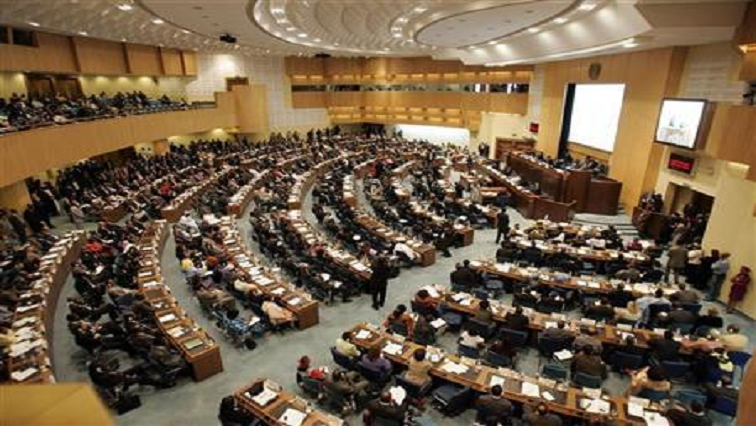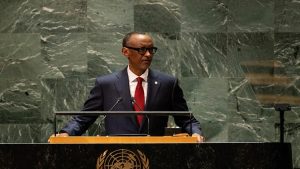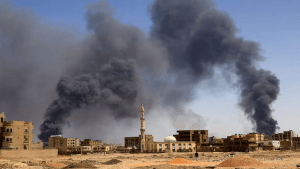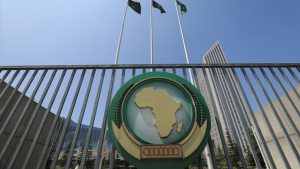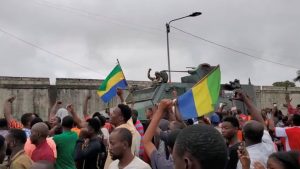The African Union (AU) is yet to decide whether it will hold its 2021 heads of state and government summit physically or virtually with the majority of the leaders supporting a meeting in Addis Ababa. A 24 December 2020 meeting that President Ramaphosa had chaired, supported a physical meeting amid the pandemic.
Other leaders, however, feel it is not advisable.
AU summits often held the organisation’s headquarters in Addis Ababa are characterised by a big crowd mainly from delegations of the 55 member states. But this year, the heads of state will take advice from the Africa Centres for Diseases Control and Prevention (Africa CDC) on whether it would be possible to meet in Ethiopia’s capital.
The continent is recording an increase in infections and a new strain of the virus in South Africa and Nigeria. “There should be no doubt in our minds that the second wave is here and that the second wave is threatening to be even more aggressive than the first wave,” says Director of Africa CDC Dr. John Nkengasong.
Increase in coronavirus cases
The Africa CDC says the continent began registering an overall increase in COVID -19 infections from July 2020, although countries like Ethiopia that host the AU are reportedly recording lesser cases.
The AU Commission chair Moussa Faki Mahammat says a physical meeting in Addis Ababa could be possible on 6 February with a highly streamlined agenda and limited delegates.
This idea is, however, subject to the trend of the pandemic in the next few weeks.
Silencing of guns
The African Union is concerned that not much progress has been made in “silencing the guns” as was the theme of the concluding year.
“We have witnessed a very huge upsurge in the frequency of terrorist attacks in Burkina Faso. Indeed we also have witnessed terrorist attacks getting a foothold in north Mozambique, and we also have the situation in Libya that has been faced with the offensive from General Halifa Aftar forces and the escalating conflict between the UN recognised government of Libya and forces of Halifa Aftar,” says Commissioner African Commission on Peoples and Human Rights, Solomon Dersso.
Boko Haram in the Sahel Region and Al-Shabaab in Somalia remain a challenge to fighting terrorism in the continent. South Sudan is yet to fully adapt to a new transitional government.
Fresh conflicts like that between Morocco and Saharawi Republic and in Ethiopia’s Northern region are adding to the strain.
The COVID-19 pandemic slowed down peace processes. “I think a major development has been the fact that conflict and mediation efforts have been slowed down or completely disrupted. You also see similar issues relating to activities for the conduct of operation such as counter-terror operations having been slowed down or disrupted. And of course some opportunist actors such as terrorism groups taking advantage of the situation and launching attacks in that context,” says Dersso.
AU session on the silencing of guns:
Displaced people
The UN Refugee Agency says all these issues are adding to the already 18 million refugees and displaced people in Africa that need assistance. “I think it’s very important for member states to once again go back to the drawing board and revisit some of the questions that have been on the table for a long time. Questions that lead to displacement, Uneven and unequal distribution of wealth, poor access to social amenities, contestation for power, leadership deficiency. All these it’s very important to look at them collectively,” says UNHCR representative to AU and UN, Cosmas Chanda.
As it seeks to discuss more on these and other sticking issues in February, the African Union will elect a new chair and deputy for the AU Commission. South Africa will also hand over the chairmanship of the AU to the Democratic Republic of Congo.


